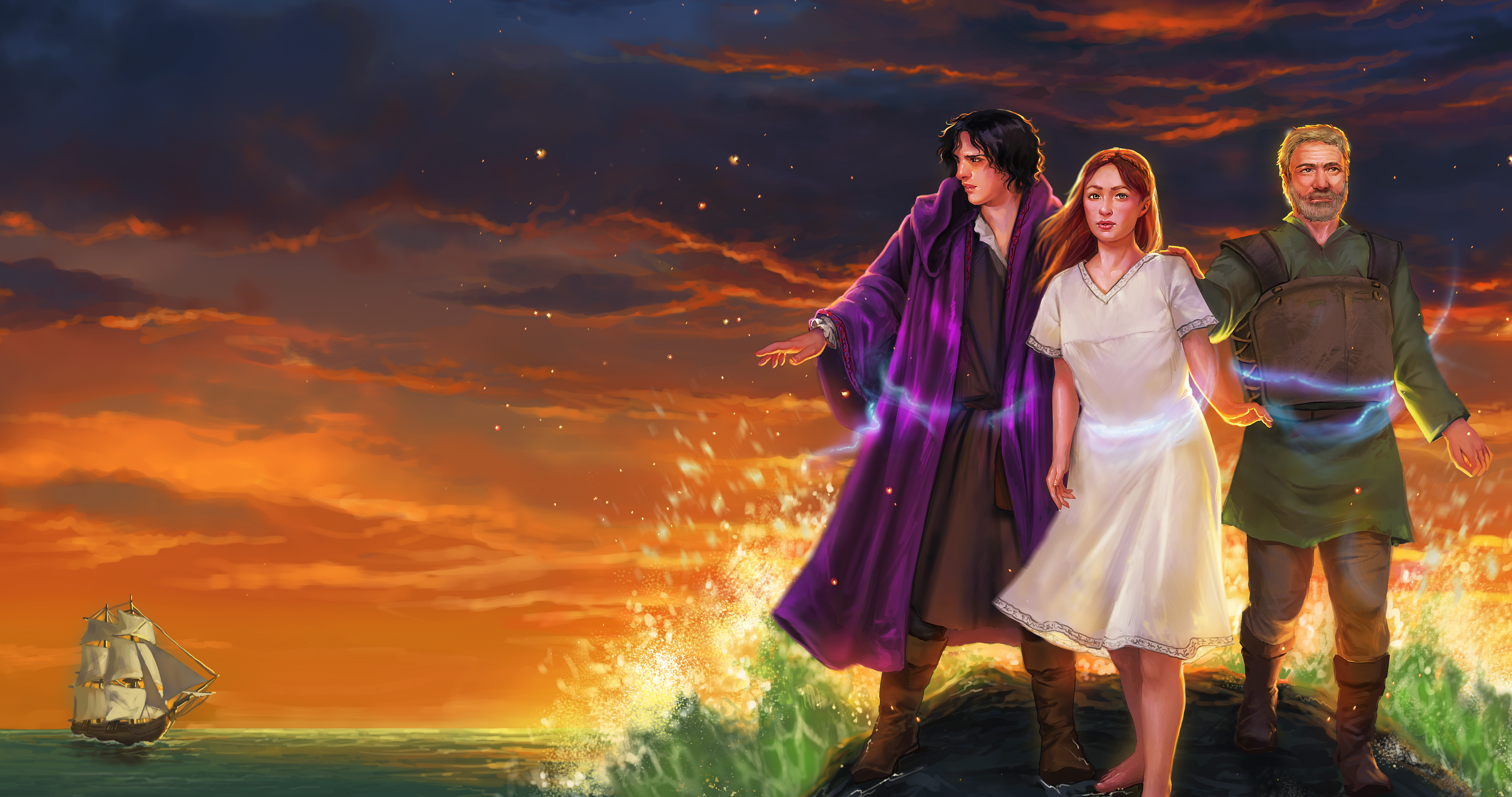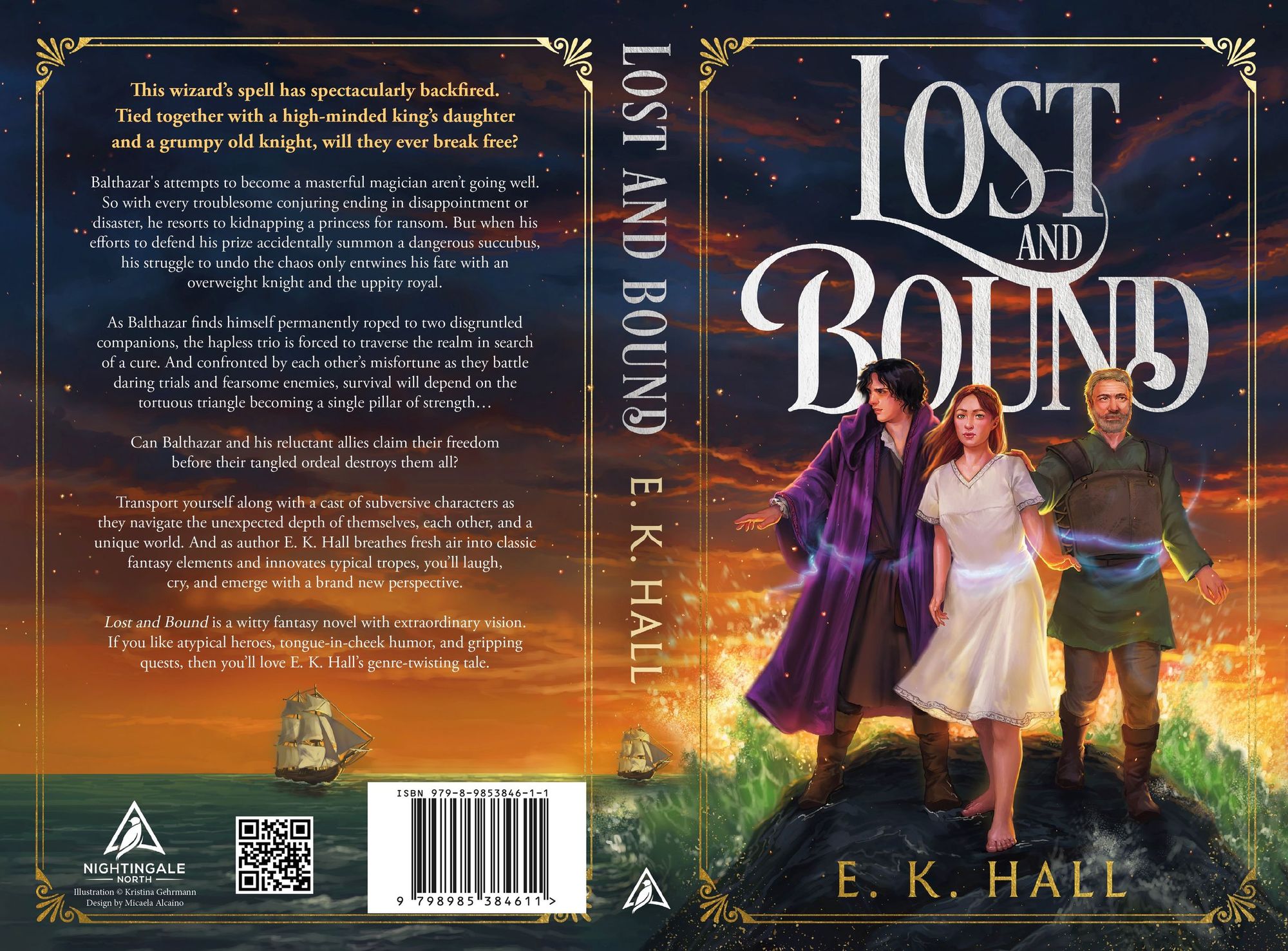
Lost and Bound: Origin of the Story
Here I discuss questions of how I came up with the underlying story in the book and my motivations for writing it. It does not contain frank spoilers regarding content, but does touch on how I have thought of the text and what I wanted to accomplish. As such, it is possible to see through this summary broader brush strokes behind the work and a foreshadowing of some constraints that may be better discovered first in the narrative itself.
It is too easy to think of stories as banal or bromidic, tales merely told to children by a dim evening light, an attempt to convince those little ones to finally doze off to sleep. But such a definition is far too nearsighted. Stories are far greater things. We enjoy them more than as simple distractions, but as lenses into different ideas. Stories allow us to explore our own realities through their windows into others.
We are in a golden age of video streaming and episodic serials. We watch movies, narrate personal events to friends and colleagues, and yes, even read books where the medium is less visual, more cerebral, and just as immersive. I would argue that good books can be the most immersive, for the ideas they put in our heads are built entirely without external visuals, sounds, or other distractions. We see stories in books, fully-formed and entirely in our own minds, to the point that the written page sometimes disappears before us. Books are stories told on grand scale.
Fiction builds worlds where the rules can be changed and narratives told by a different set of principles. A scientist might posit if x and y, then possibly z? So too does a writer set up a world with constraints and then place within it characters, actors who each experience and enact their own truths.

Why has it always been done that way?
I have always been bothered by the traditional fantasy narrative. Life is beautiful and wondrous, but also nuanced and difficult and error-prone. The real world is not populated by individuals manifested as perfect archetypes of any ideal. There are no truly complete masters of anything in life. Achievement is always imperfect and incomplete. The systems in life are complex and we struggle to understand and execute within them. A tale told of a powerful wizard in full command of complex mechanics of magic is therefore silly. As is a knight who acts as a pure and beautiful angel of justice, or a king as a paragon of wisdom and leadership. Why would the chosen one who fights and defeats a great evil also be a master of routine statecraft?
The answer is that none of this should be. It is far more likely to come across pretenders at competence because, in some ways, that's what we all are. If magic existed, it would be more likely that none understood it thoroughly and far fewer executed it with any incomplete competence. Far more likely is it that any interested individual falls far short of its understanding and execution. Just as we all seem to still fall short of any complete understanding of physics and the universe or civics and governance.
The same could be said of knights and damsels in distress. Knights are still human, flaws and all. And perhaps these damsels are not as beautiful and angelic, nor so passive and helpless. I wanted to write a tale where everyone falls short but still achieves some kind of imperfect beauty, full of humanity.

So where now?
I feel there are so many things that I want to be, but so few where I even partly measure up to any ideal. So I see myself in each of the three main characters, full of doubt, struggle, and longing, always poorly achieving any want I have in my head.
One day on a walk around a lake, I was tickled by the idea of a want-to-be wizard who reached for competence only to always fall short. For as we said, why must he be great?
He had to be called something fearsome, full of magical edge and a vector pointing to greatness, because it would be even more amusing when he constantly fell short of even his name. Too, what is a fantasy without a princess? Her name could only be the most obvious, so that the irony of her coloring outside the lines was that much more delicious. Finally, a knight must come to fix it all, though he too must fall short of the mark. He would be named something that seemed noble, though on closer consideration would sound soft and lazy.
But why would such a trio ever interact, let alone traverse together the many pages of a book? What if they were somehow forced to do so? I thought of an opening event and a way to bind them closely. I was intrigued to see if I could narrate anything of length where there were such tight physical constraints.
However the shared goal of any three such misfits was clear: free themselves. And yet as they sought to separate themselves physically, fixating first on the others' many shortcomings, they would instead grow slowly together. Like us all, they would see at first only the good in themselves and what was wrong in the others. But like us too, they would come to recognize their own limitations by experiencing the strengths of their companions. They would each grow greater because of each other, their shared humanity, and these constraints.
Thank you for your time. I hope you will enjoy reading the story as much as I did creating it.

Lost and Bound
Lost and Bound is available on Amazon in paperback and ebook formats.
